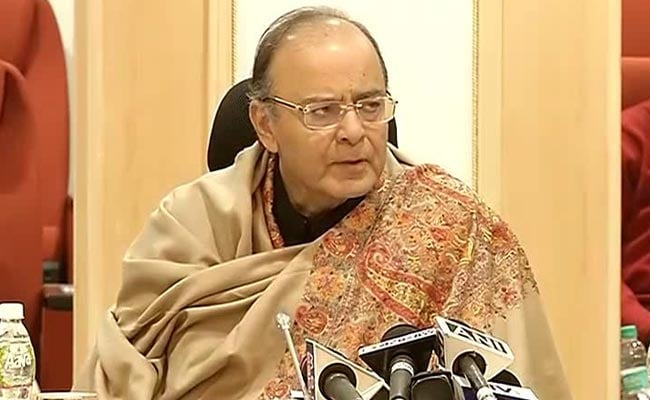
India's most important tax reform in decades will roll out in July and not April as planned because of unresolved disputes between the centre and states over taxation powers, Finance Minister Arun Jaitley said today. The National Goods and Services Tax or GST replaces a jumble of complicated levies which make business tough for manufacturers and creates a unified market. The GST Council, a decision-making body that combines Finance Minister Arun Jaitley with his counterparts from other states, met today.
Here are the 10 latest developments in this big story:
The GST Council today agreed that the April 1 deadline has been rendered unfeasible because of delays in deciding who will administer the tax along with other details.
States like West Bengal have been arguing that ahead of the loss in earnings that they will contend with when GST kicks in, removing the tariffs they charge when goods move across state borders, the recent demonetisation drive by the centre has already hurt their revenues, and therefore the centre must increase what it pays them as compensation over the next five years.
A major point of dispute has been who will assess -and therefore tax - businesses and entities with annual earnings of upto 1.5 crores which contribute a huge part of tax revenues. States wanted exclusive rights to this category.
It has been agreed that they will assess 90 per cent of the group with the centre handling the rest, said Mr Jaitley today.
Those with a turnover of more than 1.5 crores will be divided equally between the centre and states. Mr Jaitley stressed again today he does not favour dual agencies auditing and scrutinizing each taxpayer, because that would defeat the point of GST.
The GST, a reform championed by PM Modi, could add upto two percentage points to India's growth according to Mr Jaitley.
Late last year, the GST Council decided that the new sales tax will apply in four slabs. The tax rates will range from 5 to 28 percent, with 12 percent and 18 percent as standard rates.
The new tax also includes a separate central "cess" that will be levied on tobacco products, luxury cars and aerated drinks, charged on top of the 28 percent tax bracket.
The central "cess" will remain in place initially for five years and its proceeds would be used to compensate states for revenue losses following the GST's implementation.
It's not clear yet which tax rate will apply to the services which contribute nearly 60 percent of India's $2.08 trillion economy.

